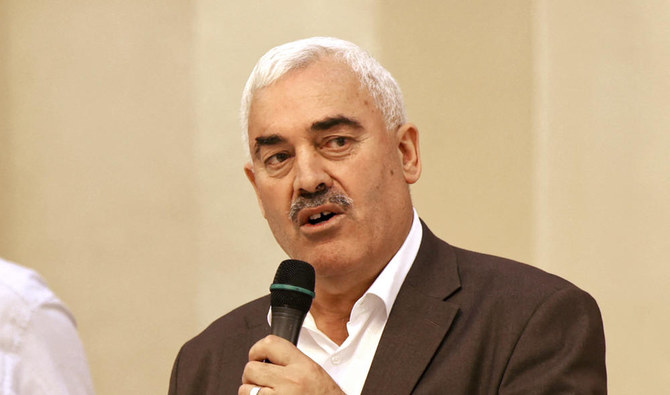RAMALLAH: The European Commission has told Ramallah-based NGO Al-Haq Human Rights Organization that the 13-month suspension of €40,000 funding from the EU will be lifted after finding that the suspension was “illegal and was not devoid of political dimensions.”
Al-Haq is one of six Palestinian human rights organizations that the Israeli government declared on Oct. 19 to be “outlaws,” citing its association with the (leftist) Popular Front for the Liberation of Palestine, which it classifies as a terrorist group. On May 21, Israeli authorities issued a military order to close Al-Haq’s headquarters.
Al-Haq was established 43 years ago. It received the prestigious Bruno Kreisky Prize for Services to Human Rights in June.
Shawan Jabarin, director general of Al-Haq, told Arab News: “The importance of the decision lies in the (fact) that we are trying to defend ourselves against a terrible machine that has friends in the European Commission and the European Union. Israel is working against us politically and ideologically, and we are working professionally. And the truth has triumphed over their political attempts.”
The European Commission said in a letter to Al-Haq on June 28 that the suspension had been lifted “unconditionally and immediately” following an assessment by the European Anti-Fraud Office (OLAF).
“This decision is based on several elements, including OLAF’s assessment, which did not find sufficient ground to open an investigation. Specifically, OLAF concluded that there is no suspicion of irregularities and fraud affecting EU funds in implementing (Al-Haq’s) EU-funded project,” the letter stated.
In a statement issued on June 30, Al-Haq said: “Since its imposition in May 2021, it was clear that the suspension was not prompted by any genuine concerns about the possible misuse of funding. Under the direct responsibility of the Hungarian EU Commissioner Oliver Varhelyi, the suspension became a political initiative aimed at giving the Israeli government a tailwind in its attempts to disrupt and defame Palestinian civil society and to oppress the voices of Palestinian human rights organizations and defenders. No other conclusion can be drawn based on what we have experienced with this suspension in the past 13 months.”
Al-Haq had previously filed a case against the EC with the European Court and a hearing is scheduled to take place on July 4, Jabarin added.
Al-Haq said in its statement that it has no illusions about Israel’s escalating campaign to shrink civic space for human rights organizations and its attempt to silence human rights defenders in Palestine, the culmination of which was Israel’s decision in October 2021 to designate Al-Haq and five other leading Palestinian NGOs — Addameer, the Bisan Center for Research and Development, Defence for Children International — Palestine, the Union of Agricultural Work Committees, and the Union of Palestinian Women’s Committees — as “outlaws.” The five other organizations do not received funding from the EU.
“We have challenged the commission’s lousy faith performance from the start of the suspension, contesting its necessity and proportionality and demanding clarifications of the grounds and information on which the suspension was based. Until today, the Commission has failed to provide these clarifications,” Al-Haq’s statement read.
“Throughout 2021, the Commission consistently ignored our questions and requests. In early 2022, we appointed a Belgian lawyer to defend our rights vis-à-vis the Commission. On April 1, 2022, he launched an ‘amicable settlement’ procedure on our behalf, including our proposal on how the dispute between the parties should be resolved,” it continued.
“The decision to freeze funding was a crime against us,” Jabarin said. “The issue is not financial but political, in which the EU participated. Now the mistake has been corrected, as it has been proven that there is no misuse of money or financing for terrorism. This is a message to the Israelis and the European Union, who built their positions on false Israeli reports against us.”
















